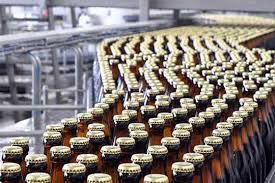5 Key Takeaways from AB InBev SEC FCPA Settlement
 The Justice Department and the SEC have been busy over the last 2 weeks in the FCPA arena. For those who have raised doubts about DOJ and the SEC’s continuing commitment to FCPA enforcement, you should forever hold your peace.
The Justice Department and the SEC have been busy over the last 2 weeks in the FCPA arena. For those who have raised doubts about DOJ and the SEC’s continuing commitment to FCPA enforcement, you should forever hold your peace.
The SEC announced a $6 million settlement with Anheuser-Busch InBev (“AB InBev”) for FCPA violations that occurred in India, along with a precedent setting (in an FCPA case) penalty for violating SEC whistleblower protection provisions. DOJ declined to prosecuted the case in August 2016.
AB InBev’s subsidiary, Crown Beers India Private Limited (“Crown”) made payments on behalf of InBev India International Private Limited (IIIPL”), a joint venture, which was 49 percent owned by AB InBev, to two third party promoters. IIIPL was dissolved in 2015. While IIIPL was owned only 49 percent by AB InBev appointed the CFO and Crown’s in-house counsel served as IIIPL’s in-house counsel.
IIIPL engaged two sales promoters that were used to facilitate and increase the sale and marketing of Crown’s beers in two India states, Andhra Pradesh and Tamil Nadu.
IIIPL hired Promoter Company A to increase beer sales in Andhra Pradesh, and made improper payments to government officials.
IIIPL also retained Promoter Company B’s Principal to increase extra brewing hours in Andhra Pradesh and increase beer orders in Tamil Nadu.
A Crown employee raised concerns internally about the two promoters. The employee was terminated, and employee’s claims concerning improper firing were subsequently settled in mediation. The settlement included provisions that appeared to prevent the employee from continuing to cooperate with the SEC.
The five key takeaways from the SEC settlement are:
Ignoring Basic Due Diligence Requirements. Both promoters involved in the AB InBev case had no experience or apparent knowledge of the beer industry or the regulation and distribution of beer in the respective states in India. On their faces, AB InBev should have acknowledged and addressed the big red flag – why were these promoters being hired and what conceivable justification existed to support retaining the promoters?
Promoter A was paid excessive commission and reimbursements for promotional expenses. For example, certain “display” charges that had no substantiation and were billed on a “per case” basis rather than corresponding to the actual costs incurred. Promoter A used these commissions and reimbursements to pay government officials.
No one conducted due diligence of Promoter A. Crown’s in-house counsel forwarded AB InBev’s FCPA due diligence forms to IIIPL staff but the forms were never completed.
Even after a 2010 audit was conducted and the deficiencies in internal controls was identified, AB InBev did not remedy the situation nor address the absence of any due diligence documentation for Promoter A.
The Principal of Promoter Company B had connections to the son-in-law of the Andhra Pradesh Excise Minister. The Principal used his local connections to secure extra brewing hours for Crown.
Around the same time, IIIPL engaged the Principal to assist in generating beer orders from the state government authority in Tamil Nadu. This was the first and only time that IIIPL ever sold Crown beer in Tamil Nadu.
The Principal and Promoter Company B had no experience, staff or infrastructure in Tamil Nadu. IIIPL did not conduct any due diligence before authorizing the Principal or Promoter Company B to work for IIIPL. Subsequently, IIIPL employees completed and backdated due diligence forms. IIIPL employees also modified responses to the due diligence forms to make them more suitable.
 Failing to Execute a Written Contract. In both cases, AB InBev failed to execute written contracts before engaging Company A, and the Principal and Company B. With respect to Company B, IIIPL employees eventually entered a written contract and back dated the start date. As to Company A, IIIPL relied on two email messages to document that terms and conditions of the contract.
Failing to Execute a Written Contract. In both cases, AB InBev failed to execute written contracts before engaging Company A, and the Principal and Company B. With respect to Company B, IIIPL employees eventually entered a written contract and back dated the start date. As to Company A, IIIPL relied on two email messages to document that terms and conditions of the contract.
Failure to Remediate After Internal Audit. Once AB InBev discovered potential deficiencies in response to the employee concerns, AB InBev expedited a planned internal audit of IIIPL. The 2010 audit identified numerous deficiencies in IIIPL’s policies and procedures, internal controls, and a lack of FCPA awareness.
Slow-Walking the Government’s Investigation. AB InBev did not disclose the complaints from the whistleblower. AB InBev did not respond to SEC subpoenas in a timely manner and made broad assertions of privilege that required significant resources from the staff to resolve and delayed the investigation. The failure to cooperate initially was a mistake and reflected AB InBev’s failure to respond seriously to the investigation.
Handling of Whistleblower Complaints. AB InBev failed to respond to the employee complaints in 2009 and 2011. The employee was eventually fired, apparently in retaliation, leading to an employment claim. The severance agreement includes provisions that block the employee’s ability to provide information to the government.
















Mr. Volkov,
The Justice Department failed to prosecute this case, with the SEC settling for $6 million; they “settled” the Och-Ziff Capital Management Group LLC bribery scheme with a Deferred Prosecution Agreement, paying out $213 million to the DOJ and $199 million to the SEC. I suspect there was also exclusionary language included n the DPA to prevent civil actions filed on behalf of any possible victims, as the DOJ routinely does in their DPA’s and NPA’s. GlaxoSmithKline was “settled” for $20 million in civil charges for another bribery scheme in China, with the DOJ deferring action against the company.
My questions include, is the DOJ trying to “settle” these cases now in case we get a new US Attorney General in 2017, and who is accountable for the recovered penalties. Where is it an official public record that the funds are accounted for by the U.S. treasury?